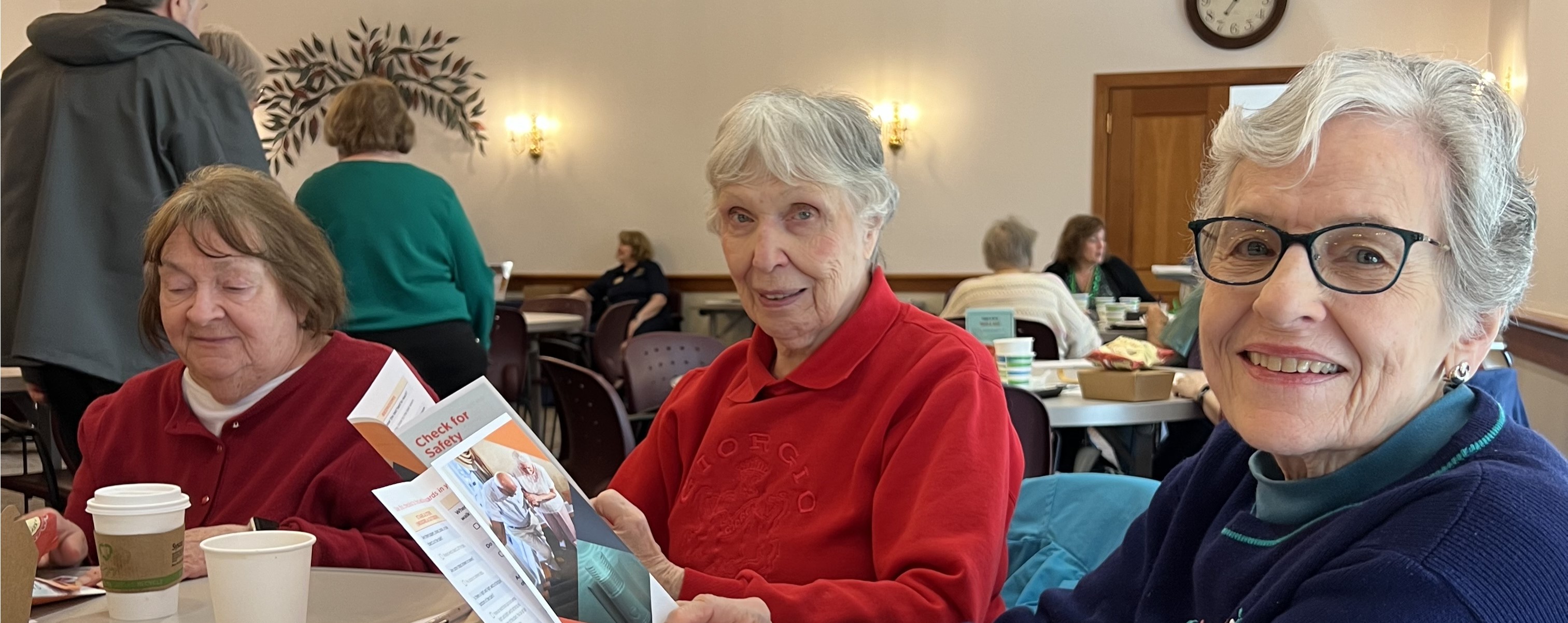The ┬щ╢╣╩╙╞╡╫ю╨┬╫ю╚л University College of Public Health has collaborated with more than 25 community partners to complete one of the first collaborative senior-focused Community Health Needs Assessment in Northeast Ohio. Led by Steve Paciorek, Ph.D., director of community health and human services for the City of Brecksville, and a team of graduate students, the Senior Center Research Consortium Older Adults Needs Assessment was an interprofessional effort to identify the most pressing health concerns and service gaps affecting adults aged 50 or older in six Northeast Ohio counties, including Cuyahoga, Lorain, Summit, Portage, and Medina.
The successful implementation of this assessment marked the completion of the first phase of the College of Public Health's Senior-focused Community Programming which was made possible by a three-year grant from Medical Mutual of Ohio. Results of the CNA were presented to the community and stakeholders at the Brecksville Senior Center on October 3, 2025, during тАЬMental Health Day.тАЭ
"This is a very important collaborative assessment related to older adults in our area, and it will serve as a cornerstone for developing a comprehensive community health improvement plan," said Sonia Alemagno, Ph.D., dean of the College of Public Health. "This initiative enhances the efficiency and effectiveness of community health assessments, ensuring that the findings lead to actionable, impactful strategies."
The primary objective of this assessment was to provide local stakeholders with essential data to help address the needs and concerns of the older adult community across three priority health areas:
Mental health and wellness
Social isolation and loneliness
Senior center utilization
Data collection involved a community survey, which the research team distributed at local senior centers, health fairs, and other community events. The research team also gathered qualitative insights through 10 key informant interviews and three focus group discussions.
A total of 845 older adults aged 50+, community members, and local leaders participated in the assessment, ensuring a well-rounded and inclusive understanding of the community's needs.
Data Highlights
Mental Health
Most of the older adult respondents rated their mental health positively, with 71% describing it as "very good" or "good." Despite this, mental health care utilization was notably low, with 92% reporting that they had not sought care from any mental health professional in the past six months. Among those who did not seek care, the most common mental health concerns included depression, anxiety disorders, and cognitive or memory issues.
Wellness
A strong majority of older adults expressed positive feelings about aging, with 93% agreeing they are aging well, and 86% stating they have much to look forward to. Nonetheless, concerns about aging were present, especially about losing mental capacity, the ability to live independently, and becoming a burden to family. Physical mobility concerns dominated wellness issues, with the top concerns being balance, arthritis and joint pain.
Social Isolation and Loneliness
Most older adults maintain strong social ties, with 73% reporting contact with friends or neighbors several times a week or more and 49% rating their social health as "very good" or "excellent." In addition, they тАЬrarelyтАЭ or тАЬneverтАЭ felt lonely (76%) or socially isolated (83%), with the leading concerns being the loss of friends or family, lack of social interaction opportunities, and health limitations.
Senior Center Utilization
Most older adults surveyed (94%) visit their senior center, with many visiting weekly (62%) or daily (24%). However, 6% reported rarely visiting their senior center, primarily due to a lack of awareness of the activities offered, physical limitations, and transportation issues. Interest in trying new activities was strong, especially group classes (e.g., dancing), games (e.g., trivia), and exercise activities (e.g., yoga).
From Assessment to Action
To effectively support the diverse needs of older adults in our community, the research team suggests that senior centers should prioritize programming that promotes physical health, mental well-being, social engagement, and lifelong learning.
Additionally, ensuring digital inclusion is essential in todayтАЩs connected world. Technology education initiatives that focus on digital literacy, safe internet use, and online social engagement can empower seniors to stay connected with family, access vital services, and participate in virtual communities.
тАЬOur holistic approach ensures that the voices of those most affected by these issues are heard and that the solutions we develop are both practical and impactful for the communities we serve,тАЭ stated Paciorek. тАЬBy incorporating evidence-based strategies, senior centers can foster a more inclusive, engaging, and supportive environment that enhances the well-being of older adults throughout Northeast Ohio.тАЭ
For questions about the Senior Center Research Consortium Older Adults Needs Assessment, please contact Steve Paciorek at spaciore@kent.edu

